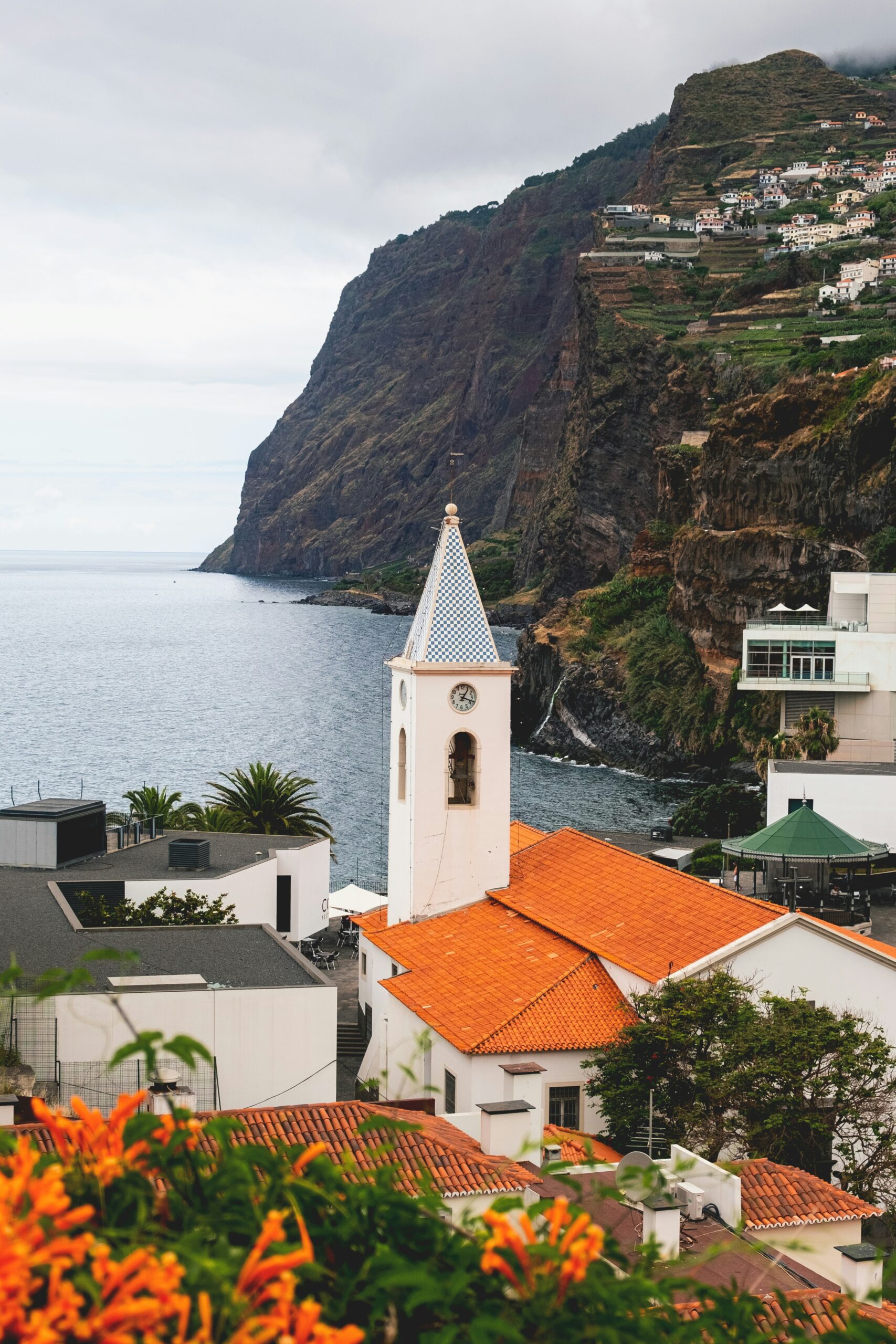Portugal is probably one of the most popular places for digital nomads to go. Part of the reason is that Portugal decided to launch its Portugal digital nomad visa in October 2022. With that, it was one of the countries who adopted a digital nomad visa rather early.
Of course, there are many reasons why digital nomads or people in general would want to live in Portugal. We’ll have a closer look at these reasons later on but first we’ll have a look at the details of the digital nomad visa.
Highlights of the Portugal Digital Nomad Visa
- Visa for non-EU/EEA and non-Swiss citizens.
- There are two options with the digital nomad visa. You can apply for a one year visa or for a residency permit of two years.
- You need to meet different conditions to qualify for the Portuguese digital nomad visa. The most important criteria is probably that you need a minimum income of €3.680 per month.
- The digital nomad visa offers a path to permanent residency and even Portuguese citizenship.

Types of Digital Nomad Visas in Portugal
The Portuguese digital nomad or D8 visa offers you a stay in Portugal of at least one year. However, the exact length of the visa depends on the option you choose as the digital nomad visa offers both a temporary visa and a residency visa.
Temporary Visa
The temporary visa is valid for up to one year.
You can extent for six more months if you want to stay a bit longer. In case of renewal, you will need to meet the same requirement as with your initial application.
This option will allow you to test out the waters in Portugal without committing too much. It will for example enable you to remain a tax resident in your former home country.
Residency Visa
The residency visa allows you to stay for two years in Portugal.
After those two years, you can extent for three more years bringing the total up to five years.
After those five years, you can even apply for permanent residency or Portuguese citizenship.
D7 or Passive Income Visa
Many nomads also apply for the D7 visa. Definitely before the D8 or digital nomad visa was launched, the D7 visa was rather popular.
However, this is a passive income visa. This means that this visa targets people with passive income from investments (e.g. dividends, rent, etc.).
In the past Portugal also accepted applications from digital nomads with income from abroad.
However, with a proper digital nomad visa in place you should probably not apply for the passive income visa unless you do actually have sufficient passive income.
Requirements to Apply for the Digital Nomad Visa in Portugal
If you want to apply for the Portugal digital nomad visa you need to meet certain requirements:
- Be a non-EU/EEA or Swiss citizen (these people don’t need a visa to move to Portugal).
- Provide proof of remote work. You can work as an employee or as a freelancer. In each case you will need to provide the necessary documents as proof. As an employee you can provide a copy of the contract with your employer. For freelancers these can be contracts with your clients.
- Proof of prearranged accommodation for at least one year.
- Have a minimum income of four times the Portuguese minimum monthly wage. The minimum monthly wage for 2026 equals €920 which means you need a monthly income of at least €3.680. However, if you want to add family members the amount increases. You will need to provide proof of income for the last three months before filing your application.
- Savings equal twelve times the Portuguese minimum monthly wage or €11.040 in total. If you have dependents also this amount increases further.
- You can also provide more information about your personal and professional situation in the cover letter which you have to attach to your application. This might be helpful to clarify your financial/professional situation.
- Have a valid health insurance. However, this condition is waived if Portugal and your home country have a bilateral agreement regarding medical assistance (e.g. UK and Brazil).
- A clean criminal record from your home country.
- Proof of your tax residency.
- A passport that is valid for at least three months after the expiration of your Portugal digital nomad visa.
- If you want to add family members to your application you will also need a marriage certificate (spouse) or birth certificate (children). These need to be apostilled in the country of origin.
Application Process
When you want to apply for the digital nomad visa Portugal the first step is to fill out the application form.
Next, you can submit this form together with all the other necessary documents which we discussed before.
Please note that these documents need to be in English or Portuguese. If they’re not, you’ll need a translation.
You have to submit your application in the embassy/consulate responsible for your current country of residence. During your visit they will also take pictures and fingerprints.
Then the Portuguese authorities will review your request which can take up to 60 days. You can track the progress online. You will also receive an email with the outcome of your application.
Once your application is approved, you will need to visit the local embassy/consulate to receive the D8 stamp in your passport. This stamp is valid for four months and will allow you to enter Portugal.
On you arrive in Portugal, you’ll have to go with your passport to the immigration department to apply for your actual residence permit. This can take another 90 days to be issued.
Do note that to apply for your residence permit, you need to manage some other things beforehand. You will need to have a Portuguese bank account and Tax Identification Number (also called NIF).
So, don’t forget to handle this before you step into the immigration office in Portugal or they will not accept your application.
Cost Associated to the Visa
During the application you’ll also need to pay the visa fee of €90 per person.
If your visa is approved and you go to Portugal to pick up your actual residence permit you will be charged an additional €170.
Therefore, you need to account for a total budget of about €260 in fees for the Portugal digital nomad visa.

Portugal Digital Nomad Visa Tax Considerations
When you apply for a visa you always need to consider the possible tax consequences. This brings us to the question on when you become a tax resident in Portugal.
Portugal will consider you a tax resident if you spend more than 183 days in the country during a twelve month period.
In addition, even if you spend less time there, they can still see you as a tax resident if you have your habitual tax residence in the country. This is likely to happen if you apply for your residency permit in Portugal.
This is a more factual assessment but if Portugal is the only place where you have housing available, you could fall under this criteria.
You can also read this article if you want to know more details about tax residency in Portugal.
In the past, many digital nomads moving applied for the non-habitual residence regime. However, as from 2024 the NHR-regime was changed due to which most digital nomads will not qualify anymore.
How is Portugal for Digital Nomads?
We already mentioned earlier that Portugal is an all time favorite for digital nomads. Cities like Lisbon and Porto attract many nomads. And Madeira is probably the most popular digital nomad island while also quite some people enjoy spending time in the Azores.
The first reason many people choose to spend time in Portugal is the climate. Situated at the Mediterranean, it has mild winters and warm summers.
Just like its neighboring country of Spain, Portugal offers a laid back and nice lifestyle compared to many Western countries.
Furthermore, you will also find still a lot of nice and unspoiled nature. And if you are into surfing you probably want to check out Ericeira as you can consider it the surfing capital of Europe.
Because Portugal is so popular with nomads, you won’t have any problem with finding like minded people. However, this popularity has also another side of the coin. Finding affordable housing has become more and more a challenge in those hot spots. Nevertheless, the overall cost of living in Portugal will still be lower than in many other places.
Feel free to reach out if you need help with your tax structuring or digital nomad visa.
